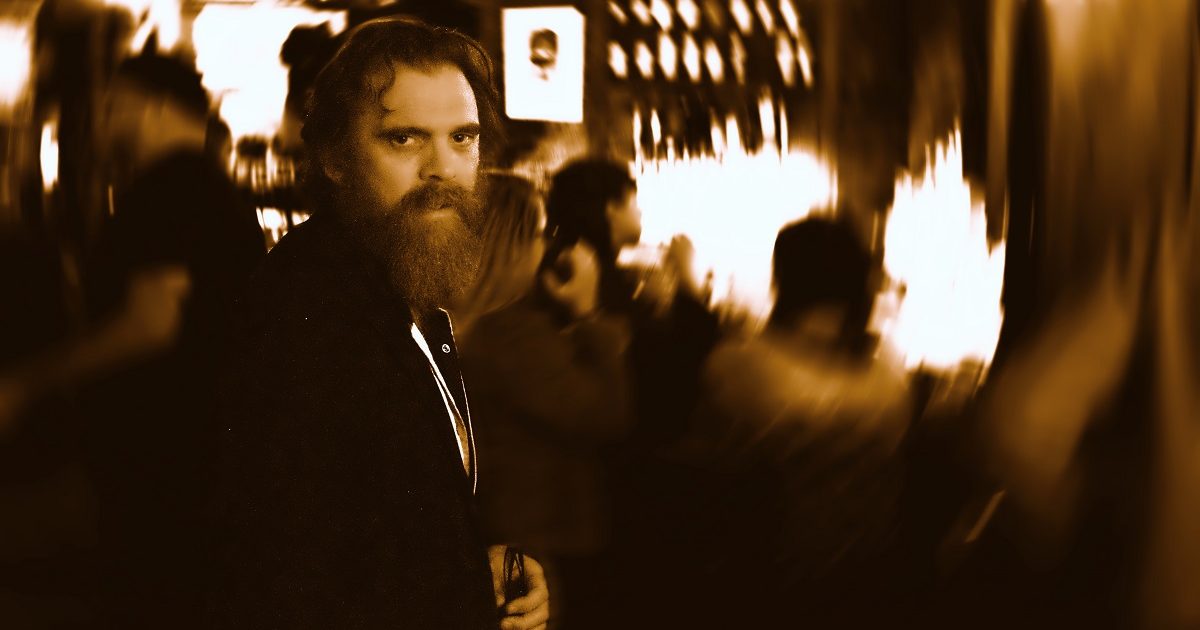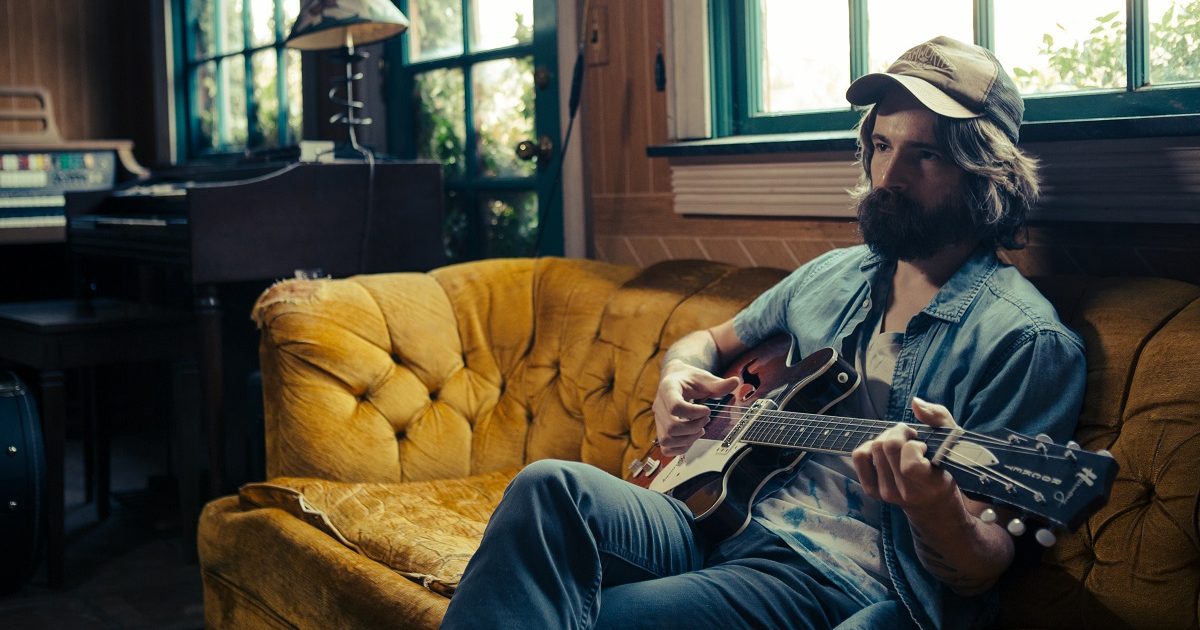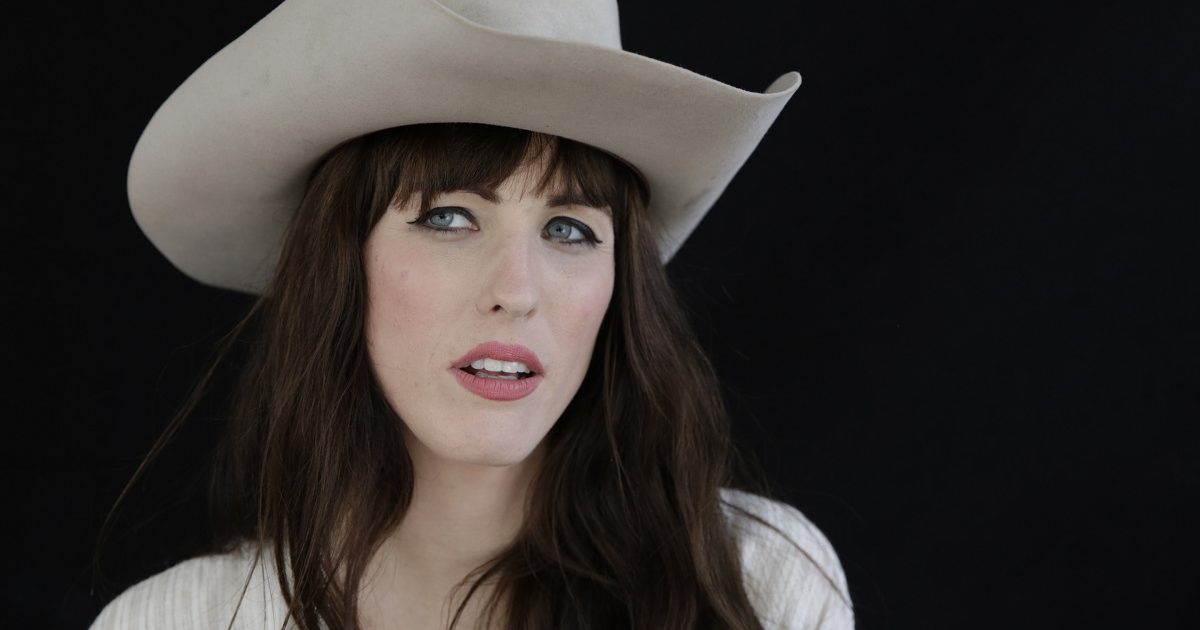I found myself digging into my comfort music throughout ’20-’21. It felt like a hard time to be adventurous. These songs are from so many records I’ve spent so music time with, and which surely informed my new album, Power Up! (out June 10). It also features a few of the great folks we lost during this period. — David Newbould
Thin Lizzy – “Try a Little Harder”
I probably listened to more Thin Lizzy over the last two years than I did to any other artist. They have so many songs I wish I could just crawl up inside of and never come out. This song is at the top of the list. Phil Lynott just had everything to me. He wrote the life he lived. He somehow enhanced it but never sugarcoated it, and in the end it was all too real. This song feels like it could be one of the defining songs of the 1970s but it was an unreleased B-side. “When all those dark days came rolling in I didn’t know whether to stop or begin / To try a little harder…”
Joe Strummer & The Mescaleros – “Get Down Moses”
I love the rawness of this track, the gang vocals, the reggae telecaster, and the way Joe always sang with the passion of a thousand rock ‘n’ roll ambassadors rolled into one electric folksinger body. I wrote a song years ago called “One Track Heart,” based on a line I heard Pete Townsend say. Supposedly when he heard Joe Strummer died (of a heart defect), he said, “Well that makes sense, his heart was always too big.” I’ve come back to this excellent posthumous album over and over throughout the years, starting with this track. It always fills my heart and makes me miss him.
Gregg Allman – “These Days”
Gregg Allman’s voice will always be comfort food to me. I remember putting this on during one of the first days of lockdown setting in and feeling, “Somewhere, sometime, a different world existed, and maybe if I just keep listening to the music from it, it will exist once again.” I’m not sure about the second part yet, but it sure felt good listening to songs like this over and over again. A perfect version of an already perfect Jackson Browne song.
Bob Dylan – “Pressing On”
I’m not a religious person, but the performance of this song is powerful enough to make me believe in a different dimension. It’s one of Bob’s most impassioned studio vocals ever, and how to not love Jim Keltner and the incredible band and backup singers on this album? “Shake the dust off of your feet, don’t look back / Nothing now can hold you down, nothing that you lack.” To me there is no more defiant Bob Dylan than religious-era Bob Dylan. I see him standing on the hull of a ship, saying, “This is it, friends. Get on board with me or don’t. I really don’t care…but here’s why you should.” It took me years to get to this album because of all the critics I would read saying how bad it was. I’m pissed at every one of them for that and I’ve never listened to any of them ever again. How can people hold a job in which they are so wrong so much of the time?
Black Sabbath – “Wheels of Confusion”
This is one of the saddest and most soulful guitar lines to open a song ever. This band was all heart on record. Heart and drugs. Like Phil Lynott, they wrote the life they lived. Fortunately, they all made it out the other side. I feel that on all their records, particularly the original band. This was the first album of theirs I bought, when I was 14. It was so dark and groovy, and really spoke to me. Bill Ward’s drumming gets something close to funky at a certain point, while Ozzy sings Geezer Butler’s lyrics about being a 22-year-old multimillionaire prone to depression who was something close to homeless a couple of years prior. Hard to resist.
The Rolling Stones – “Ventilator Blues”
One of my favorite songs ever, off an album that just keeps sounding better and better with every decade. From the slide guitar opening riff, to Charlie… When I put on Rolling Stones vinyl through my old handed-down Celestion speakers and turn it up, Charlie’s drums do something physically to me. There is movement and life in those spaces that make everything groove and shake. And a snare that makes my eye twitch. Like so many of the greatest Stones songs, seemingly simple but deceptively complex in the layers, colors, and fluid relationships between all the instruments. Like jazz, but with four chords and in (usually) 4/4 time. I truly believe this specialized blend of simplicity and complexity is their secret weapon.
Patti Smith Group – “Ain’t It Strange”
Just another all-hands-on-deck tidal wave performance from a band truly locked in to what makes them great. Patti Smith has such a way with melody and cadence, and can belt the shit out of a lyric, too. Damn! Radio Ethiopia is the one for me. I love the humble raking guitar chords that open the song that hint at the thunder to follow. I also have a weakness for songs in A minor, the official key of the 1970s.
Bruce Springsteen – “Youngstown”
Bruce is one of the most empathetic songwriters ever. The amount of research he puts into some of his songs when he really swings for those fences — songs like “Youngstown,” “Nebraska,” “Highway Patrolman” — he does such a thorough job of inhabiting the character, I find it very moving and inspiring. I was stuck in this song for days and days, and finally stole some of the chords and melodies and out of it came the song “Peeler Park.” I couldn’t stop myself. I had to change a chord or two so that it wasn’t out-and-out theft. Sorry, Bruce.
Steve Earle – “Taneytown”
See above! God, I feel everything inside of this troubled boy in the song. It’s so fierce and gut wrenching, and just a masterclass in empathetic songwriting by one of the best at it. Brutal vocal delivery to match. Also it’s in A Minor.
James McMurtry – “Rachel’s Song”
See above again! Few people’s work can put an unsuspecting lump in my throat on a regular basis like James McMurtry. He gives you just enough detail, and yet it’s so much. This song makes my heart hurt for this person, this single mother trying to keep her life in order for the sake of her son. And then she pauses to fixate on the snowflakes dancing outside the window. I know where it’s going every time, but I still get a chill when it does. Another song that does that to me is “If I Were You” by Chris Knight. Every time, I shudder. The power of songs like these haunts me.
Jerry Jeff Walker – “Long Afternoons”
When my wife was pregnant with our son, we would walk through the park and I would listen to this song and think, “I want our life to end up like how this song feels.” There are so many beautiful lines, and the lazy and relaxed pace of the guitar and vocal is something Jerry Jeff really had figured out. Music like this has a way of making me nostalgic for a place I wasn’t even really a part of. But that’s the power of great music and art right there. Paul Siebel wrote this song. We lost both of them over the last 2 years.
Gary Stewart – “An Empty Glass”
The most vulnerable, honest, and painful country singer I’ve ever heard is Gary Stewart. His voice is not shy at all but has so much open vulnerability to it, and his songs match the instrument to a “T.” This song paints such a picture in my mind. End of night, blurry bottles, random people, helpless inability to stop drinking the emptiness away. Deep deep pain that started as early as the character can remember. Once again, the mark of a great record is to make you feel the life of the character in the song — from the instrumentation to the production, lyrics, and of course the performance of the singer. Gary Stewart was a master.
Nellen Dryden – “Tullahoma”
This song just feels like pure freedom to me. It was cut 100% live and just bounces up and down the open highway, singing in search of a new life that surely awaits. It’s so infectious, and the playing and Nellen’s vocal feel so effortless. I also love songs that do the thing where the verse and chorus are the same chord progression, but still completely different parts. It’s a hard trick to pull off! “Everyday People” is another great example of this. Great song here. Check out Nellen, y’all.
Pete Townshend – “Slit Skirts”
Pete has a gift of taking the truly uncomfortable and making it truly powerful, examining it in truly epic pieces of rock. The time changes and chord progressions here are from heaven. Yet he’s singing about people hitting middle age, dreaming of the clothes they once wore, of the feelings they could once stir up in their lover, and crystallizes it with a line like, “can’t pretend that getting old never hurts.” Ouch! It’s just so good, it’s always impossible for me not to feel what he’s feeling, no matter where you are in your own life. He’s an original. I have leaned on his music a lot over the years.
The Wailers – “It Hurts to Be Alone”
This is another song I return to again and again and again. When I first heard this, I was with someone in a very painful situation in a very painful room, and it felt like time suddenly stopped. When the song ended I asked if we could put it on repeat, and lo and behold time just kept stopping. I love songs that can take you right back to both the moment you first heard them, and also somehow into the moment they were recorded. The vitality of this record. The voices in this song just explode out of the speaker, and the chords and lyrics are so incredibly deep. And oh that guitar (Ernest Ranglin)!
Dave Alvin – “Border Radio”
This is another song where time once again stopped as I first heard it. There are some artists you come across later than you ought to have, and when you do, you think, “Where the hell have you been my whole life?” Dave Alvin is one such artist for me, and it all started with hearing this song on the radio. It’s a perfect recording harkening back to a very specific era, and it’s a perfect song. During The Twilight Zone-esque 2020/2021, I just wanted crutches that I already knew made me feel right. Ideal or not, it’s just how it happened for me.
John Prine – “When I Get to Heaven”
One of the most frustrating and sad losses. Mr. Prine was a beautiful man who wrote about our world and life through every unique lens under the sun, and somehow had a way to make you still feel OK about it. Then he got taken down by the stupidest thing imaginable. But what joy he brought, how much perspective he helped us see through, and what a sendoff he left us. This, the last song on his last album, this spoken-word ragtime jig about going to heaven. It can’t help but make you laugh and cry at the same time. Thank you, John.
Photo Credit: Ryan Knaack


